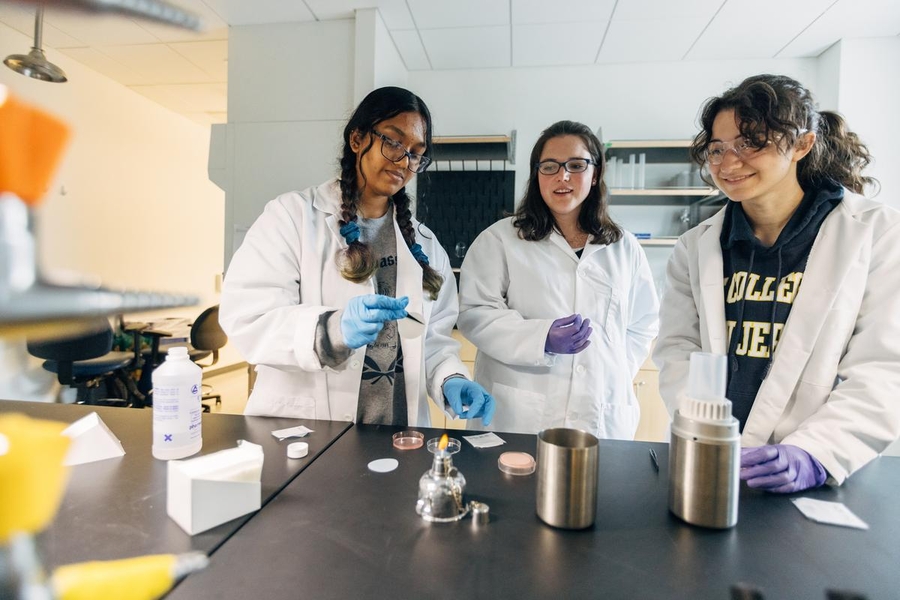All Press Releases for November 01, 2022
Students and Faculty in Leading NJ Public Health Program Study Water Overflow to Reveal How Climate Change Impacts Socio-Economic Disparities
Public health students and faculty at The College of New Jersey (TCNJ) reveal pathogens in water overflow in cities, an occurrence increasing due to climate change.
As a result of global climate change, we are seeing an increase in both the frequency and the severity of heavy rainfall events that lead directly to combined sewer overflows (CSO).
EWING, NJ, November 01, 2022 /24-7PressRelease/ -- With the devastation Hurricane Ian inflicted on Florida and other Southern U.S. states last month, conversations about how to deal with climate change are once again thrusted into the national conversation. While once-in-a-generation weather events become more frequent and severe, public health students and faculty in the School of Nursing and Health Sciences (SNHS) at The College of New Jersey (TCNJ) reveal climate change's effects on not just the environment, but on existing socio-economic disparities.
Spearheading this effort, Dr. Alexis Mraz, Assistant Professor of Public Health at TCNJ, explains, "As a result of global climate change, we are seeing an increase in both the frequency and the severity of heavy rainfall events that lead directly to combined sewer overflows (CSO). CSOs discharge untreated sewage to surface waters. People, particularly those in lower-income homes who might not have access to air conditioning, utilize surface waters as a free way to cool off, especially on very hot summer days… Therefore, any pathogens (bacteria, viruses or protozoa) in wastewater have the potential to encounter those recreating in the affected surface waters and make them sick."
The student-faculty team takes samples from surface water in Philadelphia and Trenton, NJ to inform the investigation.
"Small environmental changes can have large impacts on people. Our goal is to help monitor those changes in order to help protect communities from illness, especially ones that do not have the resources to remove CSOs from old sewer systems that are polluting surface waters," says TCNJ student Anthony Cuccurullo, Class of 2023. "While, ideally, there would be no combined sewage overflows discharged into surface waters, many communities do not have the resources to prevent it. Removing CSOs requires significant changes to sewer systems. Developing quick, affordable methods to quantify the risk of illness from recreating in surface waters allows these communities to better plan public health interventions and communication strategies."
TCNJ's School of Nursing and Health Sciences' Dean Carole Kenner explains, "Our faculty-student partnerships like this one show how education can be used as a vehicle to affect real change in the real world. Our School is honored to support initiatives that address disparities in our surrounding communities." The School rebranded in 2022 to reflect its robust and diverse, cross-disciplinary health science curricula.
TCNJ's School of Nursing and Health Sciences educates aspiring health professionals to become future leaders across the healthcare industry. Faculty work closely with local healthcare partners to provide students with applicative skills and foundational knowledge. The nationally acclaimed school is dedicated to preparing individuals—through programs in nursing, public health, exercise science and physical education teaching—for the many rewards of guiding people, communities, and populations toward improved health outcomes. The School is nationally recognized as a Healthy People 2030 Champion.
Contact Information
Crothers Consulting | [email protected] | (800) 831-3840
# # #

